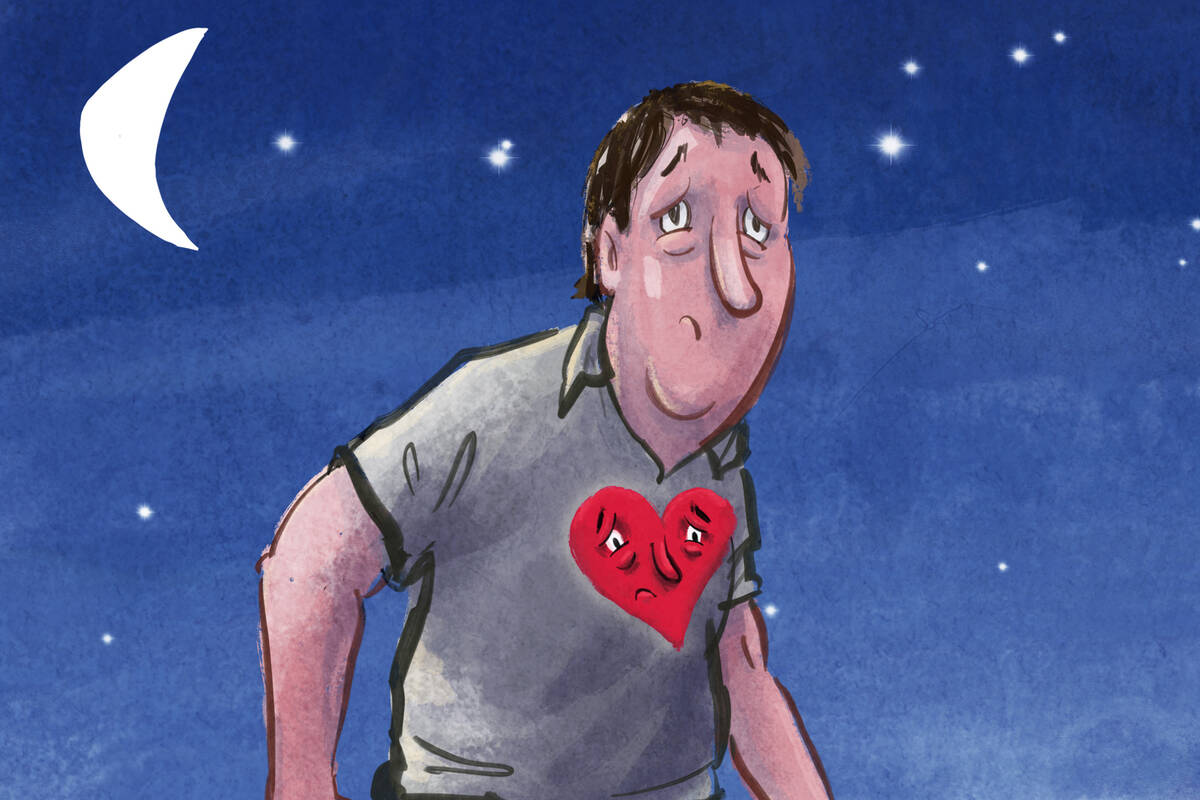Working odd hours can take toll on cardiovascular health
Working odd shifts — outside the usual 9-to-5 — is as much a signature characteristic of Las Vegas as casinos that never close, merciless summer heat and costumed characters ambling about downtown.
But working odd hours in a 24-hour town can have consequences beyond just a nagging sense of perpetual drowsiness. A number of studies have found associations between shift work and cardiovascular disease, mostly because of the stresses, irregular sleeping routine and disrupted body rhythms that can come with it.
Of course, shift work isn’t unique to Las Vegas. In just about every city there’s a corps of workers — law enforcement and public safety officers, fast-food and convenience store employees, and health care professionals, among them — who routinely are at work when most everybody else is asleep.
But being aware of the potential health risks associated with shift work may be particularly important in Las Vegas, where about 10 percent of the labor force — versus about 6 percent nationally — works nights, according to Dr. Gregory Schneider, medical director of Roseman Medical Group and professor at Roseman University College of Medicine.
‘Profound’ health effects
The potential health effects of shift work are “profound,” said Dr. Marc Kahn, dean of the Kirk Kerkorian School of Medicine at UNLV, who remembers the stresses from sleep deprivation, nighttime work and rotating shifts that he experienced during his own years as an intern and a medical resident.
“I remember when I was an intern there was a period of two weeks where I worked nights, and my wife called me a mole,” Kahn said.
Then, as a resident, “I was on call every third night, so I could be up 48 hours, easily,” Kahn said, adding that it led to issues among him and his colleagues such as continual drowsiness, a sense of dulled mental sharpness, and even weight gain and involvement in fender benders.
Sleep — not getting enough of it or getting only poor-quality sleep — is where shift workers’ potential health risks begin. Schneider said it’s not unusual for patients who are shift workers to express a “general feeling of being unwell because of irregular sleep patterns associated with their jobs,” and they often “start to have insomnia — they have trouble sleeping.”
According to the American Heart Association, not getting enough sleep — it recommends seven to nine hours each night — also is associated with a higher risk of developing cardiovascular disease, high blood pressure and high blood glucose and high cholesterol, as well as depression, cognitive decline and dementia, and obesity.
“We don’t know why exactly, but there is a higher rate of heart attack and heart disease in general” among shift workers versus daytime workers, Schneider said.
Disrupting the body’s rhythms
Dr. Ram Singh, a Las Vegas cardiologist, notes that one study linked working the night shift for 10 or more years with a 37 percent increased risk of coronary heart disease, and another found that nurses who worked more than 15 years on rotating night shifts experienced a 38 percent higher risk of dying from heart disease than daytime-only workers.
The reason stems from the disruption nighttime and shift work causes to the body’s circadian rhythms, which, the National Institutes of Health explains, are “physical, mental and behavioral changes that follow a 24-hour cycle.”
The body’s circadian rhythms “respond primarily to light and dark,” according to the National Institutes of Health. So, the disruption of circadian rhythms that comes with sleeping during the day and working at night can be associated with such cardiovascular risk factors as high blood pressure, insulin resistance and obesity.
Meanwhile, shift workers may feel “socially isolated,” Schneider said. “Because you are against the mainstream pattern of human life, they have a hard time connecting with friends and even family members.”
The psychosocial stresses that can come with shift work may result in workers making unhealthy lifestyle choices — drinking and smoking, overeating, not getting enough exercise — which, in turn, Singh said, can create or worsen such cardiometabolic risk factors such as obesity, insulin resistance and diabetes, and hypertension.
Be proactive about health
The added challenges and stresses of their jobs make it vital for shift workers to take an active role in maintaining their own well-being. That starts with identifying, monitoring and managing potential work-related health issues.
“Check in with your doctor to make sure you’re up to date on screenings to check high blood pressure and diabetes,” Schneider said, and discuss strategies for getting enough sleep, eating healthily and incorporating physical activity into your daily routine, whenever your “day” happens to be.
Determination and creativity might be necessary to clear the practical hurdles a shift worker might face. For example, “it may be hard to work exercise into your life, especially if your life is the opposite of the way things are set up,” Schneider said. “A lot of times, one thing I find as a primary care physician is for many years we (offered) simple advice — you need to eat better, you need to get more exercise. There’s nothing wrong with that message, but unless you figure out a way to work it into people’s lives, it may not change things.”
While some people may have no choice but to work atypical shifts, “the thing they can do is have some awareness,” Singh said. “That includes knowing they are at higher risk for heart attack and stroke and knowing what the symptoms are.”
The importance of sleep
Getting enough regular sleep should be a key element of the shift worker’s daily routine.
“We know that sleep is necessary to maintain decreased stress in the body and decrease inflammation,” Kahn said.
The importance of sleep for cardiovascular health was underscored last week by a study published in the Journal of the American Heart Association, which found that having irregular sleeping habits — sleeping a varying number of hours and falling asleep at different times each night — may increase the risk of atherosclerosis, a dangerous buildup of fatty plaque on artery walls, in adults 45 and older.
The study is one of the first to offer evidence of a link between atherosclerosis and sleeping irregular hours, according to the study’s lead author.
Getting enough good sleep may include such tactics as hanging blackout curtains or using calming sound generators, Schneider said. Also, shift workers should avoid caffeine and alcohol, and go to bed at the same time each day.
Whatever the strategies, Schneider said, the goal is to make sleep “as relaxing and restorative as you can.”
Sound sleep advice
The American Heart Association recommends that adults get seven to nine hours of sleep each night, and offers these sleep hygiene tips:
— Charge electronic devices as far away from your bed as possible.
— Dim devices' screens or use a red filter app at night, because the bright blue emitted by most devices can interrupt your body's circadian rhythm.
— Set an alarm to remind yourself that it's bedtime.
— Put your phone in do not disturb mode.
— Consider installing an app blocker to halt emails, social media and gaming apps.















